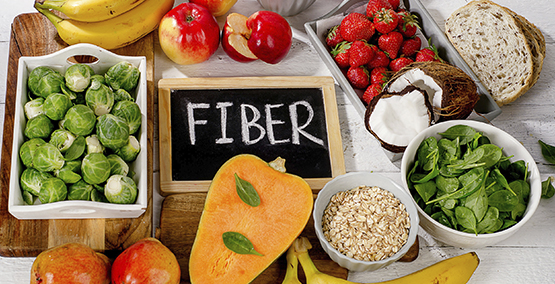
The Latest and greatest treatments for IBD: What to believe
What’s the best IBD medicine for me? Confusion on television and in your inbox....
See moresign up for our newsletter
SubscribeFiber, at the right time, may be able to decrease flares or even prevent Crohn's disease. At the wrong time, fiber can make Crohn's disease or ulcerative colitis worse.
Studies have shown that increased fiber can actually lower the risk of Crohn's disease and can decrease flares by 40%–as long as you do it when you don't have active symptoms (pain, blood in the stool and diarrhea). It seems to be because all that healthy fiber has a good effect on the bacteria in your intestine. Fiber also has other benefits that can help with Crohn's disease:
But it's a careful balance, because too much fiber can also irritate Crohn's disease by causing bloating, diarrhea and pain or fill you up so you aren't as hungry. High fiber foods during a flare can make it worse or contribute to a blockage.

Fiber was often called "roughage" in the past. Roughage is the parts of plant food that humans don't have the enzymes to digest and absorb. The roughage can scrape against a sore intestine or block a narrowed area, if the fiber is thick like the stalks of broccoli. That's why it's best to eat a low-fiber diet during a flare.
This article, as well as all others, was reviewed and edited by a member of our Medical Advisory Board.
Subscribe Be the first to know